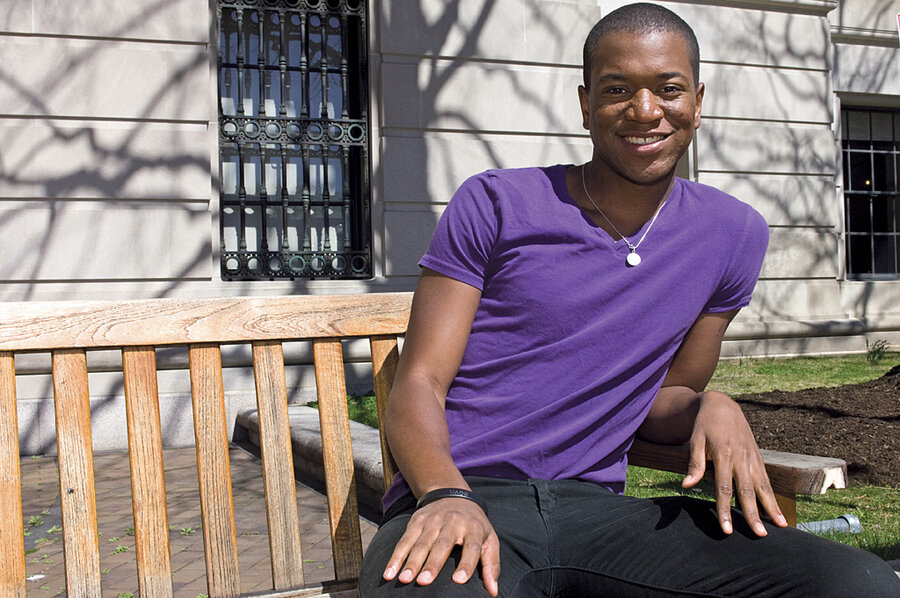Tabias Wilson first became aware of what it meant to be black in America during first or second grade, when he lived in southeast Kansas with his grandmother. He asked his grandma what the sign meant at the sheriff's house next door: "Coon hunters only."
His grandmother promptly went over, ripped the sign off the tree, and confronted the sheriff about it.
These days, as a junior at prestigious Tufts University, Mr. Wilson says he sees a subtler form of racism – but also a big difference in how he's treated when he's on campus versus in inner-city Boston.
"When I walk in [the predominantly black neighborhoods of] Dorchester or Roxbury, I'm just another black man on the street. I've been stopped by police on the street, just for walking at different times of night. It's eye-opening," says Wilson, who majors in American studies and is active on campus in the Pan-African Alliance, Emerging Black Leaders, and the Tufts Law Review. White women, he reports, often cross to the other side of the street when they see him – and he wants to do the same thing.
"I'm trying to walk on the other side of the street!" he says. "In case she calls the police, I don't want to be arrested for trying to rob her or something."
Wilson says that in some ways he prefers "Kansas racism. Then at least I know…. In Boston, it's very subtle; you don't really know. It's like telling me I have the equal opportunity to run in a race, but you don't give me any shoes."
He sees the violent behavior of some young black men as a defense mechanism. "They have a lot of anger to deal with. Before, there was something to point at, to blame for racism. Here, now, it's amorphous. It's like trying to catch the wind."
– Meredith Bennett-Smith, contributor






